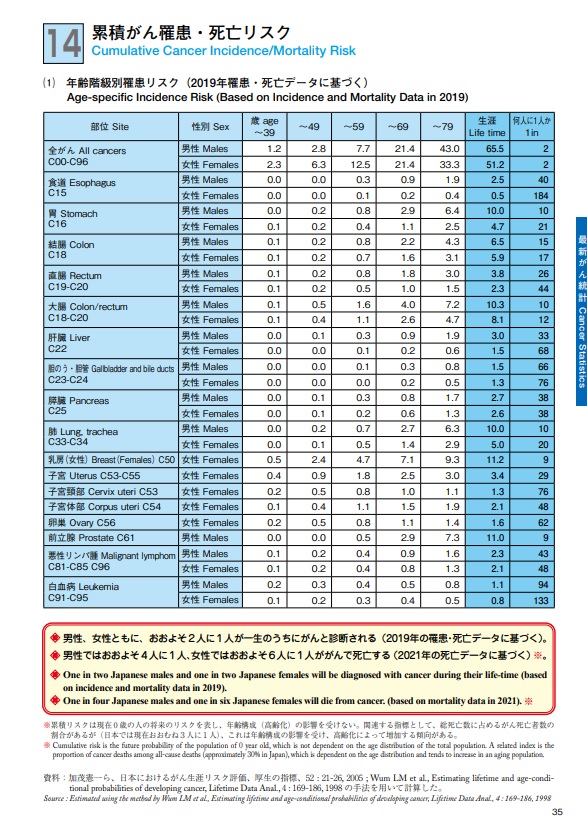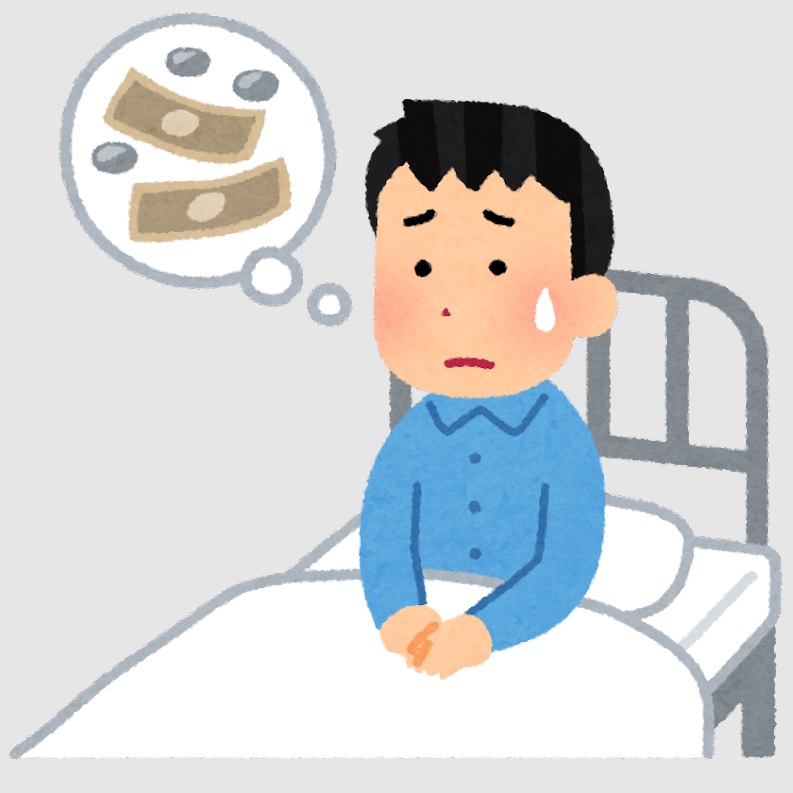「数字のマジック|2人に1人がガン?数字の裏に隠された真実とは」
~前回のつづき~
●医療保険に入っておけば安心?
『安心』って一体何ですか?
何が安心なんでしょう?
ガン保険に入ってたらガンが治りますか?
イメージすり替えられてませんか?
ガン保険に入っててガンになったら
ガンの治療費が出るんですよね?
ガンが治る訳ではない。
当たり前です。
ガンの治療費が出るんですよね?
ガンの治療費が出るのは分かるんですけど
その為に毎月お金を払うんだったら
貯金しておけばいいのではないでしょうか?
MAX10万円なので。
お金をためておいたらいいと思いませんか?
●2人に1人がガンになる?
「ほとんどの人がガンになるんだから入っておいたほうが得じゃない?」
確かに嘘ではないです。
年齢を重ねたら最終的にはという話なんです。
2人に1人は。

(国立がん研究センターのHPより)
平均寿命に近づいた時には
2人に1人はガンになるという事なんです。
それぐらいの年齢になったら何かしらの病気になります。
若い間はそんなに病気にかかるか?って話です。
ものすごく確率が低いんです。
数字のマジックです。
確かに最終的には2人に1人はガンになる。
『2人に1人は』だけをピックアップして言われると
若いうちに2人に1はガンになるんだという
イメージを持ってしまいがちです。
そうではない。
巧みなイメージ戦略です。
なんとなく不安になるのではなく数字で見てほしい。
最終的にガンになっちゃうのはしょうがないじゃないですか。
若い時のガンは怖いですが保険に入ってたからと言って治る訳ではない。
医療費が出る。
「先進医療が受けられるじゃないか!」
「高額療養費制度では保険適用の治療しか受けられないじゃないか!」
「民間保険に入っていれば保険適用外の治療が受けられるじゃないか!」
何度も言いますがガンが治るわけではない。
先進医療だとしても。
ここなんですよ。
治る訳ではない。
効果が高かったら今後保険治療の対象になってくるかもしれない。
ただ病気が治る訳ではない。
保険に入ってる入ってないという話ではないですよね?
それであれば治療を受けられるだけのお金を貯金しておいた方が大事です。
先進医療は高いとかそういう話をしだすと長くなってしまうので割愛します。
覚えていてほしいのは
保険に入っていたからと言って病気が治るわけではない。
という事です。
「積立型だから安心!」
という声もあります。
将来的は返ってくるから安心だという事ですが積立型は非常に損をします。
これはまたの機会にお話しします。
〜〜〜つづく〜〜〜
Special Thanks college president Ryo.
●おまけ
≪≪Chat-GPTくんによる要約≫≫
医療保険に入ることが安心なのか、ガン保険に入っていればガンが治るのか、そのようなイメージがあるが、実際には治療費の一部が出るだけであり、ガンが必ずしも治るわけではない。また、「2人に1人がガンになる」という数字は年齢を重ねるという意味での統計であり、若い人にとってはその確率は低い。保険に入っているからといって病気が治るわけではなく、お金を貯金しておくことの重要性が強調される。積立型の保険は損をする可能性が高い。
≪≪Chat-GPTくんによる英訳≫≫
Continuation from Previous:
Is it Safe to Have Medical Insurance?
“What exactly is ‘safety’? What brings about a sense of security? If you have cancer insurance, does it mean cancer will be cured? Are you being misled?”
If you have cancer insurance and you get cancer, the treatment costs will be covered, right?
“Cancer doesn’t necessarily get cured.”
“Of course not.”
“But the treatment costs will be covered, right?”
“While it’s understood that the treatment costs will be covered, wouldn’t it be better to save money instead of paying every month for that?”
“Since it’s capped at 100,000 yen.”
“Don’t you think it’s better to save money?”
1 in 2 People Will Get Cancer?
“Since most people get cancer, wouldn’t it be advantageous to have insurance?”
“That’s not necessarily untrue. It’s about when you age. It’s like saying 1 in 2 people eventually.”
(National Cancer Center’s website)
“As you approach the average lifespan, it’s said that 1 in 2 people will get cancer.”
“At that age, you’re bound to get some illness. When you’re young, you don’t get sick that often, right? It’s a discussion about very low probabilities.”
“It’s a numerical magic.”
“Admittedly, eventually, 1 in 2 people will get cancer.”
“Just picking up ‘1 in 2 people’ can give the impression that young people will get cancer.”
“But that’s not the case.”
“It’s a clever image strategy.”
“Rather than feeling anxious, I want you to look at the numbers. Eventually, getting cancer is inevitable, isn’t it?”
“Cancer at a young age is scary, but just because you have insurance doesn’t mean you’ll get cured.”
“Medical expenses will be covered.”
“You can have advanced medical treatment!”
“In the case of high-cost medical care, you can only receive treatments covered by insurance!”
“If you have private insurance, you can receive treatments not covered by insurance!”
“I’ll say it again, having cancer doesn’t mean it will be cured.”
“Even with advanced medical treatment.”
“That’s the point.”
“It’s not about being cured.”
“If the effects are significant, it might become eligible for insurance treatment in the future. But it doesn’t mean the disease will be cured.”
“It’s not about whether you have insurance or not, right?”
“In that case, it’s more important to save money for treatments you can receive.”
“I’ll skip discussing advanced medical treatment being expensive, as it will make this longer.”
“What I want you to remember is, just because you have insurance doesn’t mean the illness will be cured.”
“Some say, ‘It’s safe because it’s a savings-type!'”
“It means it’s safe because it’ll come back in the future, but savings-type insurance is often a loss. I’ll talk about this another time.”
Special Thanks OpenAI.


.jpg)